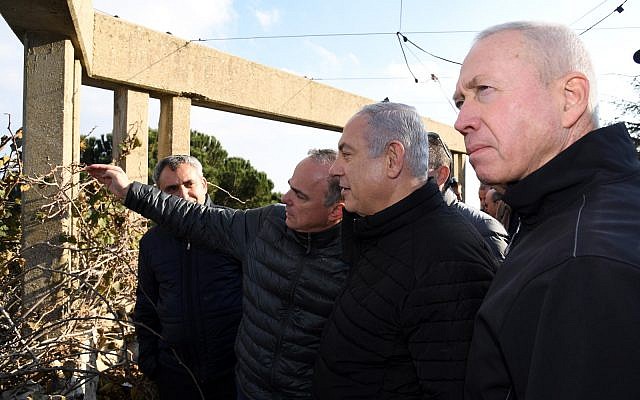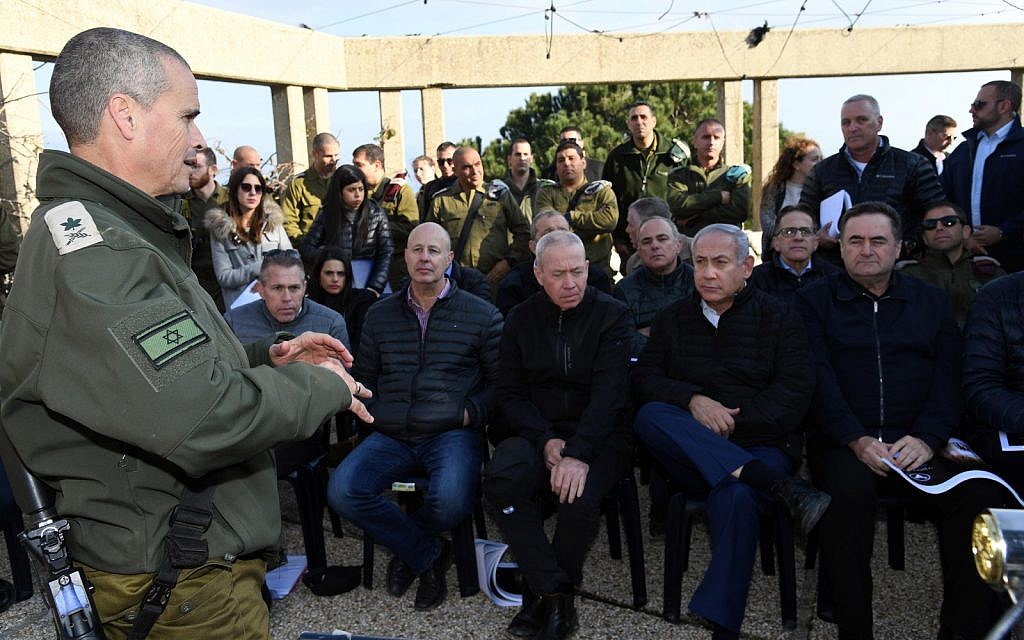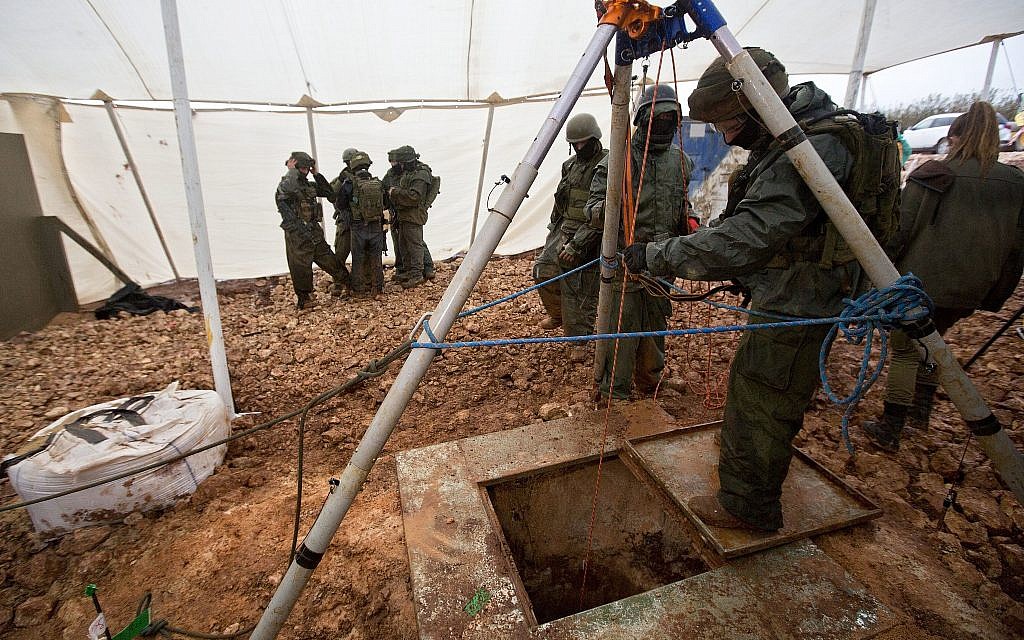Comments come day after snap poll called, drawing criticism that Netanyahu previously used security situation in north to stave off early elections

The Israeli military is close to wrapping up an operation to find and destroy cross-border attack tunnels dug from Lebanon, Prime Minister Benjamin Netanyahu said Tuesday.
Netanyahu made the comments as he toured the northern border with other lawmakers, as they unofficially kicked off a campaign for re-election in which national security is expected to be a central issue.
The Israel Defense Forces launched Operation Northern Shield earlier this month to track down the tunnels, which it says the Hezbollah terror group planned to use in an opening strike in a future war with Israel.
“This operation is almost entirely behind us,” Netanyahu said in a statement released by his office.
“There is exceptional work being carried out here that has disarmed the Hezbollah tunnels,” he said. “It [Hezbollah] invested heavily in it and we destroyed it.”
Netanyahu, who is also defense minister, was accompanied by other security cabinet members. They received a briefing on the security situation from IDF Chief of Staff Gadi Eisenkot and the head of the Northern Command, Maj. Gen. Yoel Strik.

Netanyahu chided other lawmakers last month for nearly bringing down his government, citing security concerns in the north. He has taken flack from pundits and political challengers since his coalition announced a snap poll Monday despite the security situation seemingly staying unchanged.
Most analysts believe the flip-flop was sparked by fears over possible indictments in criminal cases against Netanyahu, which could come in the Spring. Elections are expected to be called for April 9.
On Sunday, Eisenkot also said the operation was nearing completion.
“Most of the passages that enter Israel have been found, and I believe that we will complete this mission in the near future,” Eisenkot said.
However, during a tour of the northern border for journalists on Wednesday, a senior officer said the army was engaged in an open-ended effort.
“We are not restricted by time. It can take days, weeks, months. We will find all of them,” the officer said.
So far, the Israeli military has uncovered four cross-border attack tunnels. After studying them, the IDF began the process of destroying the passages on Thursday.
IDF spokesperson Lt. Col. Jonathan Conricus said only some of the tunnels were being destroyed on Thursday, while others would be “neutralized” in the future.
Israel has said it believes the tunnels were meant to be used by the Iran-backed terror group as a surprise component of an opening salvo in a future war, to allow dozens or hundreds of its fighters into Israel, alongside a mass infiltration of operatives above ground and the launching of rockets, missiles, and mortar shells at northern Israel.
The UN peacekeeping force UNIFIL confirmed last week that at least two of the tunnels crossed into Israel and were therefore a violation of the UN resolution that ended the 2006 Second Lebanon War, but did not confirm Israel’s allegations they were dug by Hezbollah. United Nation peacekeepers have stepped up patrols since the launch of the operation to ensure the frontier remains calm.
UN Resolution 1701 requires all armed groups besides the Lebanese military to remain north of the country’s Litani River.

The army has also said it is aware of the existence of other tunnels, but has yet to fully expose them.
The specific number of tunnels that Israel believes were dug from Lebanon, as well as other information about the operation, cannot be published by order of the military censor.
The operation is taking place close to Lebanese territory, sometimes on the north side of the border wall, albeit still inside Israeli territory.
An IDF incursion into Lebanon could spark a major confrontation with Hezbollah, which bills itself as a defender of Lebanon against Israeli aggression. Lebanon has downplayed chances of war so long as Israeli troops do not cross the border.
Israeli officials have indicated that the IDF may operate within Lebanese territory, if necessary, to destroy the tunnels. Lebanese President Michel Aoun, a Hezbollah ally, said Tuesday that the United States assured him that Israel has “no aggressive intentions” with its Operation Northern Shield.
Israel maintains that the tunnels represent a “serious violation of Resolution 1701 and the State of Israel’s sovereignty.”
As reported by The Times of Israel
